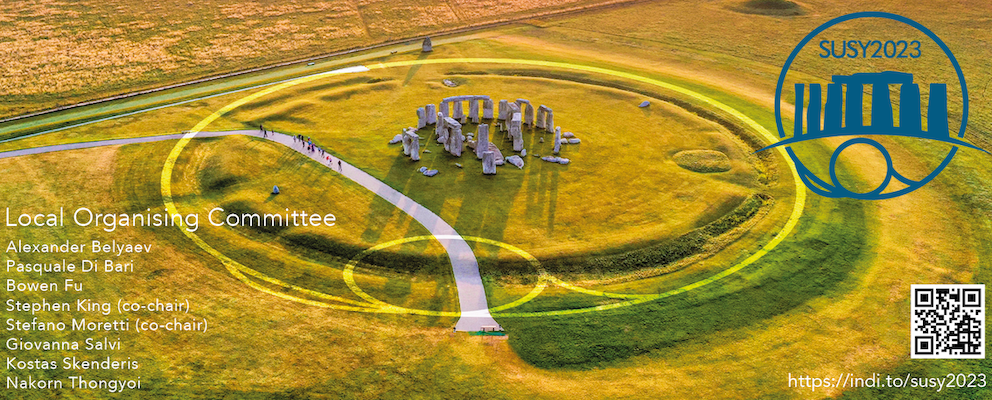Speaker
Description
A Strong First-Order Electroweak Phase Transition (SFOEWPT) is a necessary ingredient for Electroweak Baryogenesis (EWBG) to explain the observed Baryon asymmetry of the Universe. Supersymmetric models with singlet extensions can easily accommodate single or multi-step first-order phase transitions (FOPT). In this work, we examine the dynamics of an SFOEWPT and the possibility of EWBG by extending the Z3-invariant Next-to Minimal Supersymmetric Standard Model (NMSSM) with a right-handed neutrino superfield, consistent with the collider, neutrino, and flavour physics constraints. We examine the role of additional parameters on phase transition dynamics in comparison to NMSSM, and we observed that the occurrence of a FOPT prefers a light right-handed sneutrino state below 125 GeV. We further analyze the chances of detecting stochastic gravitational waves (GW) that can occur from such phase transitions by comparing the results to the sensitivity curves of the future space-based GW interferometers. We find promising GWs spectrum that can be detected within the sensitivity ranges of DECIGO-corr, U-DECIGO, U-DECIGO-corr, etc. In addition to collider searches, our study provides a complementary probe for Physics beyond the Standard Model at the GW detector fronts.
References:
[1] P. Borah, P. Ghosh, S. Roy, and A. K. Saha, Electroweak Phase Transition in a Right-Handed Neutrino Superfield Extended NMSSM [2301.05061][hep-ph]

